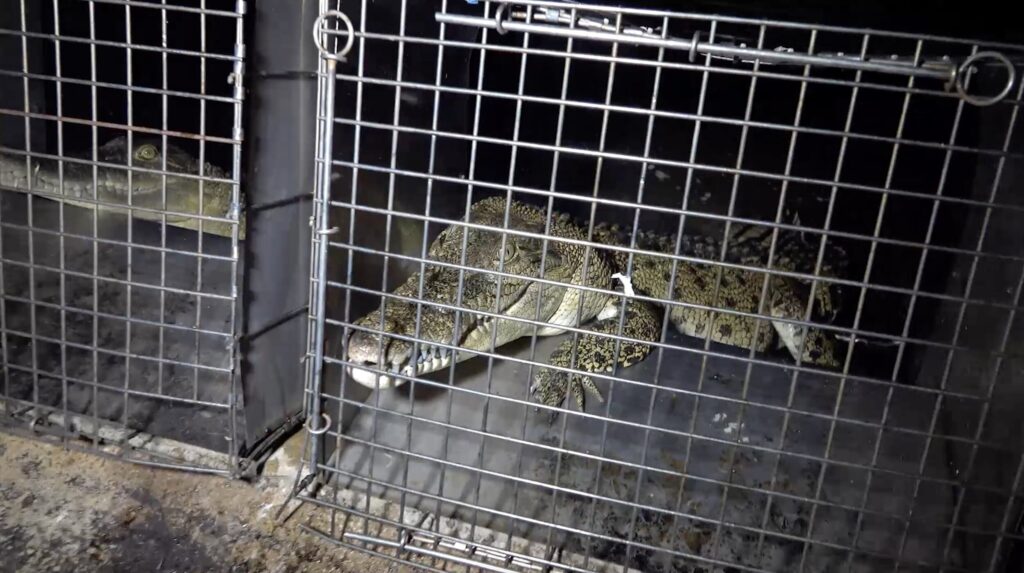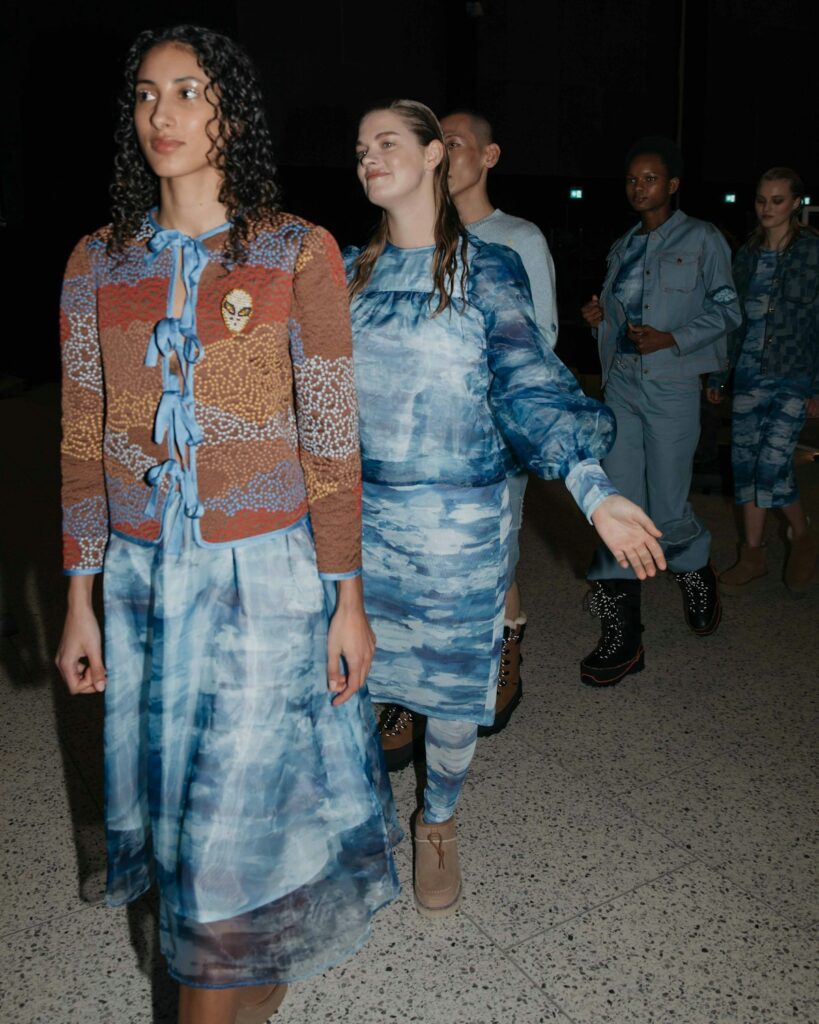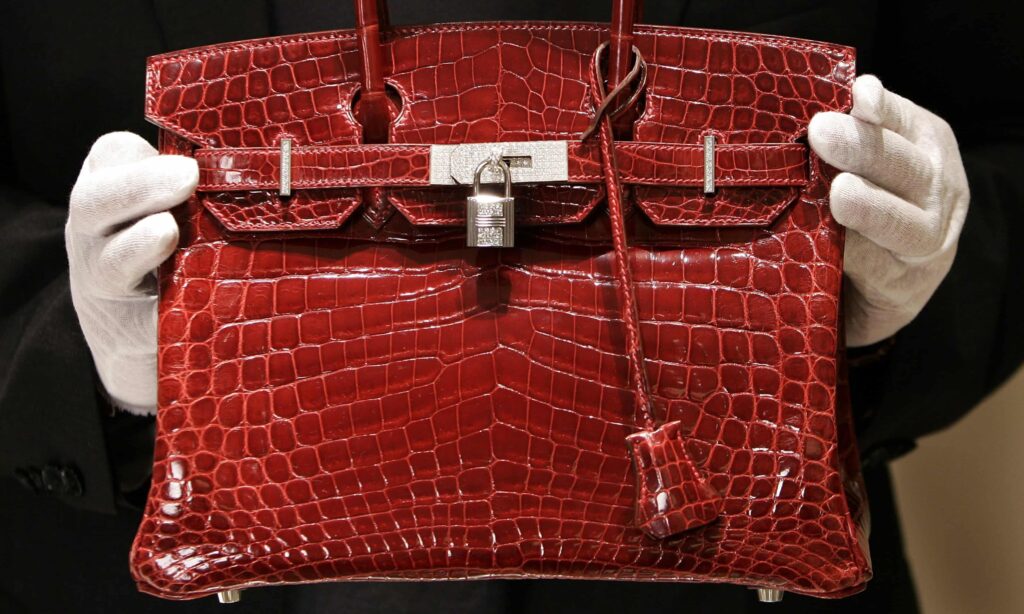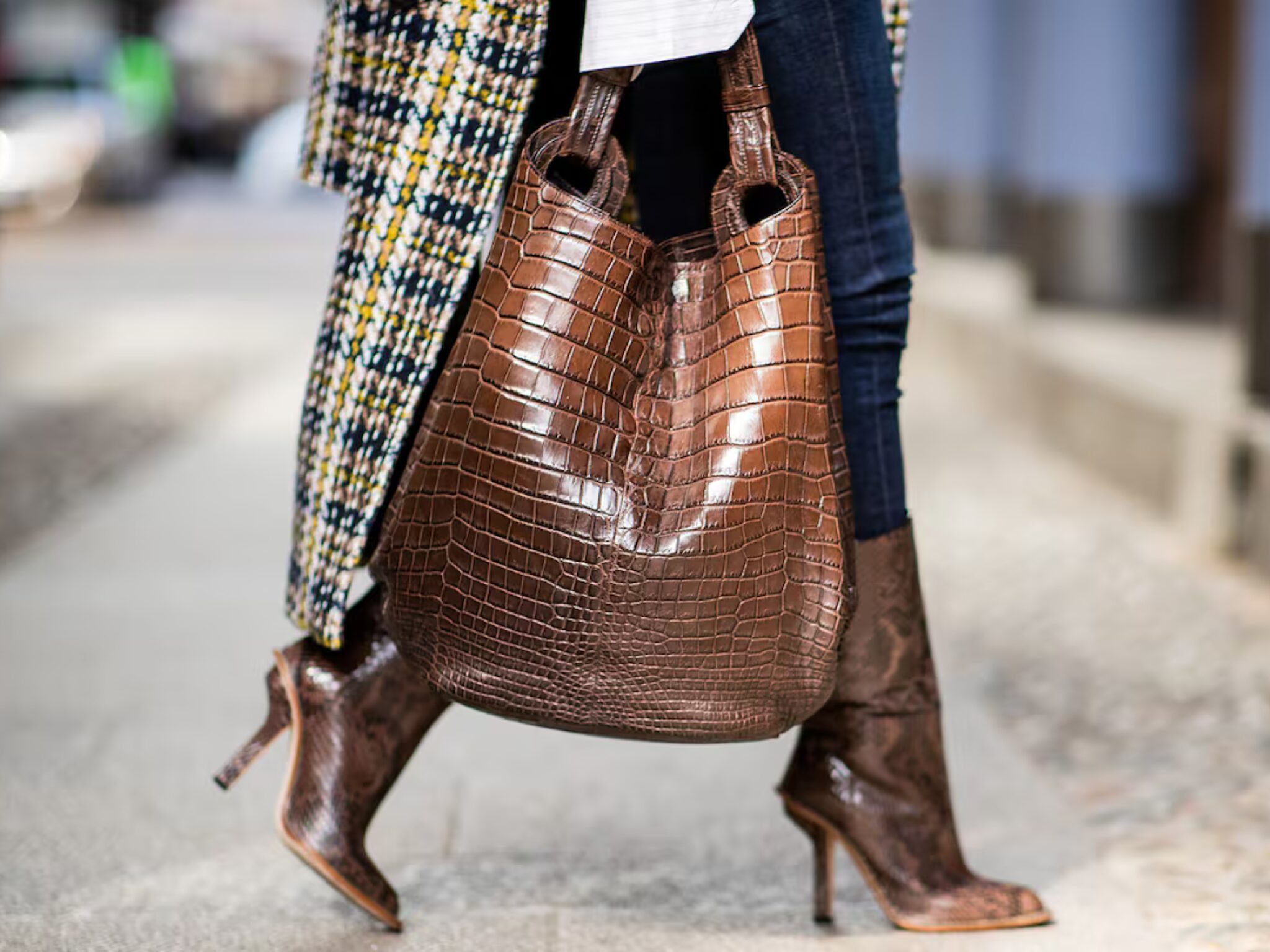Copenhagen Fashion Week Bans Exotic Animal Skins & Feathers – Will Others Follow?
6 Mins Read
Copenhagen Fashion Week made headlines last week after announcing it would ban exotic skins and feathers from its runways starting next year. Now, campaigners are calling on other fashion weeks to follow suit with cruelty-free policies.
Two years after announcing it will go fur-free, Copenhagen Fashion Week is now doubling down on its anti-cruelty stance with a ban on exotic skins and feathers, which are derived from animals like crocodiles, snakes, alligators, peacocks and ostriches.
The decision follows similar moves from smaller fashion weeks like Stockholm, Helsinki and Melbourne, plus brands like Chanel and Burberry, but items like alligator handbags, crocodile leather shoes and python heels are still not seen in the same light as fur by many labels and organisers.
This is why Copenhagen Fashion Week’s ban on skins and feathers – which will come into effect in the beginning of 2025 – is significant, becoming the “highest-profile” event to introduce it, according to trade publication the Business of Fashion. It’s part of the event’s broader sustainability initiatives, setting a high benchmark for brands hoping to participate in the show.
Exotic skins and feathers are linked with animal cruelty

Animal rights groups have been campaigning against the use of exotic skins and feathers for years. PETA’s exposés show how snakes are pumped up with air or water while they’re still alive, lizards are “crudely decapitated”, metal rods are rammed down crocodiles’ throats and into alligators’ brains to slaughter them, and baby ostriches have their throats slit and feathers plucked for bags such as Hermès’ Birkin collection.
Similarly, World Animal Protection reports that saltwater crocodiles and ostriches are factory-farmed in confined spaces and electrically stunned before being left to bleed out. It calls these practices unnecessary, noting that 72% of people say they wouldn’t buy clothes derived from wild animals, and 65% say killing them for fashion is unacceptable.
The Collective Fashion Justice – which worked with World Animal Protection to persuade Copenhagen Fashion Week to implement the ban – also sheds light on the crocodile farming industry. It found that in Australia, saltwater crocodiles are factory-farmed and kept in dank, concrete pits – despite being classified by one state government as vulnerable. These practices have endangered crocodile populations in the country.
Likewise, snakes and lizards are kept in cages or rooms piled on top of each other until they are killed in what the Collective Fashion Justice calls “horrific ways” – this includes blowing them up like balloons, stunning them with electricity from car batteries, blunt force through the back of a machete or hammer-like tools, and piercing their heads with spikes to peel off their skins like fruits.
The organisation notes that luxury fashion houses like Hermès and Louis Vuitton have driven such fashion practices – they don’t just source these skins, but now own factory farms themselves.
“Despite fur, wild animal skins and feathers all resulting in animals being killed specifically for fashion, the industry is poorly informed on these issues beyond fur, in part, due to greenwashing and ethics-washing by the industries exploiting animals,” Emma Håkansson, founding director of Collective Fashion Justice, told Green Queen.
“Wild animals like crocodiles and snakes are killed under the guise of conservation, which some brands think they should support, but these conservation claims are bogus – in Australia for example, more native crocodiles live in cages supplying the likes of Hermes and Louis Vuitton than in their natural habitat. They are killed a few years into their 70-year lifespan and cannot contribute to their ecosystem,” she added. “The industry calls that conservation, I call that commerce.”
Copenhagen Fashion Week’s updated sustainability framework

The animal skin and feather ban is one of a number of sustainable fashion initiatives laid out by Copenhagen Fashion Week. Following on from the first set of guidelines, the updated rules state that brands need to show that at least 60% of their collections are made of preferred materials or deadstock fabric, with a list of restricted materials in place. They also must prove that their innovations are sourced responsibly and designed with repairability, recycability, upgradeability and reusability in mind.
It is now mandatory for fashion labels to establish concrete criteria to ensure and educate consumers about the longevity and quality of their products, with customer service personnel needing to undergo sustainability strategies that can be communicated to customers.
Brands are required to eschew single-use props and packaging for their showcases, instead finding rentals or long-term second life for all non-rentals, and sorting waste according to Danish standards. They also need to engage in emissions reduction strategies and offset any unavoidable emissions, and be signatories of the Danish Fashion Ethical Charter.
“With the updates, we are not only raising the bar for brands on our schedule, but we are also reflecting industry developments and learnings as well as the upcoming EU policy landscape,” said Cecilie Thorsmark, the show’s CEO.
Copenhagen Fashion Week announced last year that it had met 35 out of its 37 sustainability goals from 2020-22, but missed out on its goal of slashing its emissions in half by 2023 (from a 2019 baseline), mainly due to its hospitality programme being responsible for nearly 90% of its total emissions. While it managed to reduce the average carbon footprint per guest by 77%, its total footprint was reduced by 16% in 2022 (chiefly as more events took place that year.
The organisers have said they will lay out a plan for total greenhouse gas emissions reductions this year, which will no doubt be helped by its ongoing policy of only serving vegan or vegetarian food at its shows.
Other fashion weeks should ban animal fashion too

Campaigners are now calling on other fashion weeks – especially the Big Four of London, Paris, New York and Milan – to adopt similar cruelty-free policies.
London Fashion Week, for its part, announced an official fur ban in December, although the show had been de facto fur-free for years. But its counterparts haven’t done so, and protestors made their discontent obvious. Italian fashion house Max Mara has been a major target, with hot air balloons sporting the words “Max Mara Go Fur-Free” floated above its offices during Milan Fashion Week, alongside social media posts, phone calls and emails across the fashion month.
Also in Milan, a PETA protestor stormed Fendi’s runway with a sign saying: “Animals are NOT clothing.” The animal rights charity also disrupted Victoria Beckham’s Paris runway with protestors in white vests that read: “Turn your back on animal skins” and “Animals aren’t fabric”. They held a “Viva vegan leather” sign while walking alongside models representing her brand, which PETA says has banned fur and exotic skins, but continues to use leather.
Last year, Louis Vuitton’s Pharell Williams-designed Millionaire Speedy crocodile skin bag made waves after carrying a price tag of $1M. It proved the continuing appetite for animal-derived fashion collectables on the floors of elite fashion weeks, but Copenhagen’s move to take a stand against it will hope to spark more positive and actionable conversation.
Companies and fashion weeks can transition away from animal-derived fashion by adopting alternatives already on the market. “BioFluff and Ecopel both offer plastic-free and animal-free fur, as well as recycled and bio-based options,” suggested Håkansson. “Next-generation plant-derived and other animal-free leathers made from Shiringa tree sap, fruit waste, mycelium, microbes and other inputs can be embossed to mimic reptilian textures. Fabric manipulation, rafia and even bio-3D printing can replace decorative feathers.”
“Skål to Copenhagen fashion week for raising the bar for other events,” PETA’s VP of corporate projects, Yvonne Taylor, told the Guardian. “Now all eyes are on other fashion week organisers, who must follow suit.”
Håkansson agreed: “The Big Four fashion weeks have a responsibility to ban the use of all wild animal materials as quickly as possible – this should not be considered progressive, but an essential step towards protecting animals and biodiversity.”




